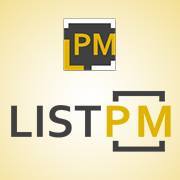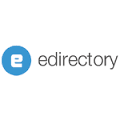What Is Directory Software?
Directory software is an all-inclusive application made to manage and arrange listings of companies, groups, or people in a particular sector. It assists users in creating an online directory that clients, customers, and community members can readily access. With its sophisticated search and filtering features and user-friendly interface, this kind of software enables users to locate the information they require fast.
The capacity of directory software to simplify the management of sizable information databases is one of its main advantages. This software eliminates the need for manual maintenance by making it simple for users to add, update, and remove listings. Additionally, users can customize it to build a directory that is specific to their community or business.
Additionally, Directory Software provides a number of features that improve customer satisfaction. Adding images, reviews, and ratings to ads is one way to help prospective buyers make well-informed judgments. Additionally, it provides alternatives for sponsored listings, allowing companies to stand out or increase their visibility.
Furthermore, Directory Software enables multi-platform compatibility, which enables access from any operating system or device. This makes the directory more usable and efficient by guaranteeing that it is available to a larger audience. All things considered, directory software is a useful resource for companies, associations, and communities wishing to establish, maintain, and improve their online directories.
It is a great alternative for people in need of a dependable and effective directory management system because of its extensive feature set, easy-to-use interface, and customizable choices. Make important to assess your unique needs when looking at directory software and select a program that has the features and capabilities that best meet your needs.
What Are The Recent Trends In Directory Software?
To adapt to the evolving needs of companies and organizations, directory software has seen substantial upgrades and developments in recent years. Here are some of the most popular developments in directory software that consumers should be aware of, ranging from boosting security to increasing user experience:
1. User-Friendly Interfaces: Directory software has concentrated on developing responsive and user-friendly interfaces in response to the growing use of mobile devices. This makes it more handy and accessible by enabling users to access and browse directories on any device.
2. Integration With Third-Party Apps: Directory software now integrates with well-known third-party apps, including as calendars, email clients, and project management tools, to deliver a smooth user experience. Workflows are streamlined and productivity is increased by this integration.
3. Multi-Language Accommodate: Directory software has evolved to accommodate multiple languages as firms expand internationally. This enables organizations to produce directories that serve a variety of demographics and are more widely accessible.
4. Customizing Options: Directory software that allows for customizing is now available to buyers. This implies that users have the ability to alter their profiles, select the layout they like, and decide what data they wish to share with others.
5. Expanded Security Measures: Directory software has included expanded security measures in response to the growing threat of cybersecurity. To guarantee the security of user data, this includes precautions like two-factor authentication, encrypted data storage, and frequent security updates.
6. Artificial Intelligence: Some directory software now has AI features, like the ability to automatically fill in contact details or recommend pertinent search results. Users benefit from increased efficiency and time savings in directory administration as a result.
7. Cloud-Based Solutions: Because it provides flexibility, scalability, and lower maintenance costs, cloud-based directory software has grown in popularity among enterprises. Additionally, it makes remote work easier by enabling users to access their directories from any location.
Benefits Of Using Directory Software
The use of directory software has grown in popularity across a range of businesses as technology develops. This software is a vital tool for companies and organizations of all kinds since it provides a centralized platform for storing and organizing vast volumes of data. We'll go over the advantages of directory software in our buyer's guide and show you why it's a good investment for your company.
1. Simplify The Information Management Process: The ability of directory software to simplify information administration is one of its main advantages. Large volumes of data can be stored and arranged with a powerful directory program, which makes it simpler to access and update as needed. This saves your company time and money by doing away with the need for human data entry and conventional paper-based filing systems.
2. Enhanced Precision Of Data: Any firm can suffer from inaccurate or out-of-date information. Because directory software enables real-time data changes and revisions, it helps to avoid this. This lowers the possibility of mistakes or discrepancies by guaranteeing that the data shown in your directory is always correct and current.
3. Improved User Experience: You may design a user-friendly and straightforward interface for your clients and staff with directory software. Users have a better experience and are more productive as a result of finding and accessing information more easily. Furthermore, a lot of directory software provides customization features that let you adjust the interface to your brand's tastes and aesthetics.
4. Enhanced Productivity And Efficiency: Directory software may greatly boost your company's productivity and efficiency by centralizing information and automating manual operations. Your staff will have more time to concentrate on other crucial duties as a result, which will eventually boost output and increase return on investment.
5. Economical Resolution: Although purchasing directory software may have an upfront cost, it may end up being a more affordable option over time. For companies trying to optimize their operations, this software is a profitable investment because the time and resources saved by implementing it exceed the cost.
6. The Ability To Scale: The tremendous scalability of directory software allows it to expand with your company. This software may be tailored to your evolving needs and remain an effective data management system whether you are a small startup or an established business.
7. More Powerful Search And Filter Features: The majority of directory software has sophisticated search and filter features that let users swiftly browse through vast volumes of data. Businesses who have a large directory will particularly benefit from this function, which boosts productivity and saves time.
Important Factors To Consider While Purchasing Directory Software?
In order to make an informed choice, purchasers need take into account a few important factors while buying directory software. These are some crucial considerations to make while weighing your alternatives for directory software.
1. Purpose: Knowing the directory software's purpose is the first and most important stage. While some software offers a broad range of capabilities appropriate for all kinds of directories, others may be tailored for certain industries or niches. Finding the best software will be made easier by determining the particular requirements of your project or company.
2. Features: Although organizing and displaying information is the fundamental purpose of every directory software, the particular features and functionalities may differ. Search capabilities, an intuitive user interface, editable templates, and connectivity with other platforms or programs are a few crucial elements to take into account. When comparing several software programs, consider which features will be most helpful to your company and rank them in order of importance.
3. Scalability: The directory software should be able to handle the growing volume of data and requests as your company expands. To make sure that the software can manage a higher volume of data and users in the future without experiencing any problems or disruptions, it is imperative to take into account its scalability.
4. User Experience: Both administrators and end users should find the directory software simple to use and navigate. An intricate and perplexing user interface may make it more difficult for people to adopt and use the program, which will ultimately affect the directory's success. Before making a purchase, look for free samples or demonstrations to check out the user experience.
5. Security: It is essential to give the software's security features top priority because of the sensitive nature of the data kept in a directory. To guarantee the protection of your data, look for software that provides strong security features like data encryption, access controls, and frequent backups.
6. Customer Support: Another factor to examine is the software company's degree of customer support. It is crucial to have a solid support system in place to help you with any technical problems or inquiries. Choose software that has a solid reputation for providing prompt and efficient customer service that offers a variety of help channels, including phone, email, and live chat.
What Are The Key Features To Look For In Directory Software?
When it comes to finding the right directory software for your business, there are several key features that you should look for. These features will not only streamline your directory management process, but also enhance the overall user experience for your customers. As a buyer, it is important to carefully consider these features before making a decision.
1. User-Friendly Interface: The software should have a user-friendly interface that makes it easy for both you and your customers to navigate and use. This includes an intuitive design, clear menus, and easily accessible search options.
2. Customization Options: Look for software that allows you to customize the directory to fit your brand and specific needs. This can include adding your logo, colors, and categories, as well as the ability to modify the layout and design.
3. Advanced Search Functionality: One of the most important features of a directory software is its search function. Make sure the software you choose has advanced search options, such as filters, keywords, and location-based search, to help users find what they are looking for quickly.
4. Mobile Compatibility: In today’s digital age, it is crucial that your directory software is compatible with mobile devices. This way, users can access your directory easily on-the-go, making it more convenient for them to find information.
5. Multiple Listing Options: If you are planning to offer paid listings to businesses, look for software that allows for multiple listing options. This can include featured listings, sponsored listings, and premium listings, allowing you to generate revenue from your directory.
6. User Interaction: A good directory software should also have features that encourage user interaction. This can include ratings, reviews, and the ability for users to save their favorite listings.
7. Analytics And Reporting: To better understand the performance of your directory, it is important to have access to analytics and reporting features. This will allow you to track metrics such as traffic, clicks, and conversions, and make informed decisions for future improvements.
8. Integration With Other Platforms: Consider a software that integrates with other platforms, such as social media or CRM systems, to streamline your processes and expand your reach.
9. Scalability: As your business grows, your directory needs may change. Choose software that is scalable and can accommodate your future needs, whether it’s adding more listings or upgrading to a higher plan.
10. Technical Support: Last but not least, make sure the directory software provider offers reliable technical support in case you have any questions or encounter issues with the software. By considering these key features, you can find the right directory software that meets your business needs and provides a seamless and user-friendly experience for your customers.
Why Do Businesses Need Directory Software?
Success in today's cutthroat business environment depends on having a strong internet presence. Directory software, a feature-rich platform that enables companies to establish and run their own web directories, can help with this. However, why is directory software necessary for businesses? Let's examine the main causes:
1. Simplify Company Procedures: By automating procedures like database administration, content publishing, and user management, directory software can improve a number of corporate operations. Businesses are able to concentrate on other crucial areas of their operations because this saves time and effort.
2. Increase Internet Visibility: A company's online reach can be significantly increased by having a presence on a directory platform. Businesses can quickly connect with prospective clients and partners who are actively looking for goods or services in their sector by using directory software.
3. Increase Awareness Of Your Brand: Businesses can improve the visibility and legitimacy of their brand by listing on a directory site. Small and startup companies trying to make a name for themselves in the market can particularly benefit from this.
4. Boost Website Traffic: Companies can add connections to their websites in their directory listings by using directory software. More potential clients visit their website as a result of the traffic and SEO improvements this makes.
5. Produce Sales And Leads: Businesses can display their goods and services to a specific audience that is already interested in their sector by using directory software. Potential sales and high-quality leads may come from this.
6. Improve Interaction With Customers Customer engagement tools like reviews and ratings are frequently included in directory software, enabling companies to communicate with their clientele and get insightful input. Customers are more satisfied and their goods and services are improved as a result.
7. Economical Marketing: Approach Directory software is an affordable alternative to more conventional marketing strategies for promoting a company. Businesses can benefit from long-term exposure on a well-known directory platform for a one-time charge without needing to make continuous marketing investments.
How Much Time Is Required To Implement Directory Software?
The complexity of the software, the size of the directory, and the degree of customization necessary are some of the variables that might affect how long it takes to build directory software. On average, though, directory software implementation can take a few days to a few weeks. Setting up the required infrastructure, such as hosting and domain registration, is the initial stage in putting directory software into use.
Usually, this may be finished in a day or two. The software must then be configured to your unique requirements. This could entail integrating any required features, creating the directory's layout, and configuring user rights. Depending on how complicated your needs are, this could take a few days to a week. It is advised to thoroughly test the software after the first setup is finished to make sure it is fulfilling your needs and operating as intended.
Depending on the directory's size and the quantity of features being tried, this testing phase may take a few days to a week. The software can then be released and made accessible to users after the testing step is finished. To keep the directory functioning properly, regular updates and maintenance could be necessary, but the first implementation procedure ought to be finished.
Generally, based on the particular demands and specifications of each directory, the time needed to develop directory software might vary from a few days to a few weeks. To achieve a successful implementation, it's critical to properly analyze your needs and allot appropriate time.
What Is The Level Of Customization Available In Directory Software?
Customization is essential when it comes to directory software in order to create a distinctive and customized experience for both your company and its users. The features and software you select will determine how much customization is possible. Changing layouts, colors, and fonts to match your branding is one of the many customization choices available in the majority of directory software.
Nevertheless, certain applications might restrict some functions to pre-made templates and limit the degree of customization. Select directory software that gives you the option to create your directory from scratch if you want a great degree of control. In this manner, you may fully manage your directory's appearance, feel, and features.
To give your consumers more detailed information, you can also include custom fields and widgets in your listings using certain directory software. Businesses who need particular fields for their listings, such contact details, social network connections, or business hours, may find this option extremely helpful. Furthermore, you can further personalize your directory using some directory software's advanced coding customization tools.
For companies that need a completely customized directory and have a distinctive branding design, this solution is perfect. In conclusion, the platform you select has a significant impact on the degree of customisation that directory software offers. Determining the degree of personalization required for your directory requires careful consideration of your branding style and business goals. You may make a polished and distinctive directory that stands out from the competition by selecting directory software that allows for a great degree of customisation.
Which Industries Can Benefit The Most From Directory Software?
A useful tool for managing and organizing data across a range of businesses is directory software. This program offers a single location for businesses to list their goods and services, as well as for customers to access accurate and pertinent information, ranging from business directories to local and specialty directories. However, which sectors stand to gain the most from directory software? Let's examine the leading industries that can effectively reach their target audience and optimize their operations by utilizing this software.
1. E-Commerce: Directory software can be very helpful to e-commerce enterprises in the rapidly expanding field of online purchasing. This software can enhance the shopping experience for customers and increase sales for businesses by listing goods and services, managing reviews and ratings, and providing tailored recommendations.
2. Travel And Tourism: Directory software is a wonderful fit for the travel business, which depends heavily on information and suggestions. This software can help travel agencies reach a wider audience and draw in more clients by displaying anything from hotels and restaurants to tour packages and tourist destinations.
3. Real Estate: Directory software is revolutionizing the real estate market for both buyers and sellers. It makes it simpler for prospective buyers to locate their ideal house by enabling real estate brokers to display properties with thorough descriptions, images, and virtual tours.
4. Healthcare: By giving medical practitioners a place to display their specialty and services, directory software can also help the healthcare sector. Patients can now more easily locate the ideal physician, clinic, or hospital for their unique need.
5. Business Services: A vital source of information for partnerships and networking is business directories. Directory software can help companies interact with potential customers and partners more easily by enhancing their web presence and increasing their exposure in their particular industries.
6. Education: To locate information on schools, colleges, and educational programs, parents and students must consult education directories. By enabling educational institutions to list and update their information, directory software can expedite this process and help users make well-informed judgments. A flexible tool that may be tailored to meet the requirements of different sectors is directory software. Businesses and customers benefit from the information centralization and increased internet visibility it offers. Directory software is essential for any industry hoping to expand and thrive in the current digital landscape due to its capacity to increase visibility and streamline processes.
Conclusion
In summary, selecting the best directory software for your company or organization is a big choice that needs careful thought and investigation. Understanding your unique requirements and objectives, as well as the features and functionality provided by various software solutions, is essential. Following a careful analysis, we have determined a few important considerations for choosing the best directory software.
These consist of your company's size and nature, the degree of personalization and adaptability needed, the ability to integrate with current systems, payment and pricing options, customer service, and ease of use. We strongly advise taking into account software that provides a broad range of features and capabilities, including sophisticated search and filter choices, user and content administration, customization options, and security measures, based on our research and analysis.
To guarantee a successful and seamless implementation and operation, it is also crucial to select a provider that provides dependable and prompt customer assistance. In the end, the ideal directory software is one that fits your company's requirements, stays within your budget, and is simple for administrators and users to use. We hope that this article has given you useful information and insights to help you choose the best directory software for your company.






















